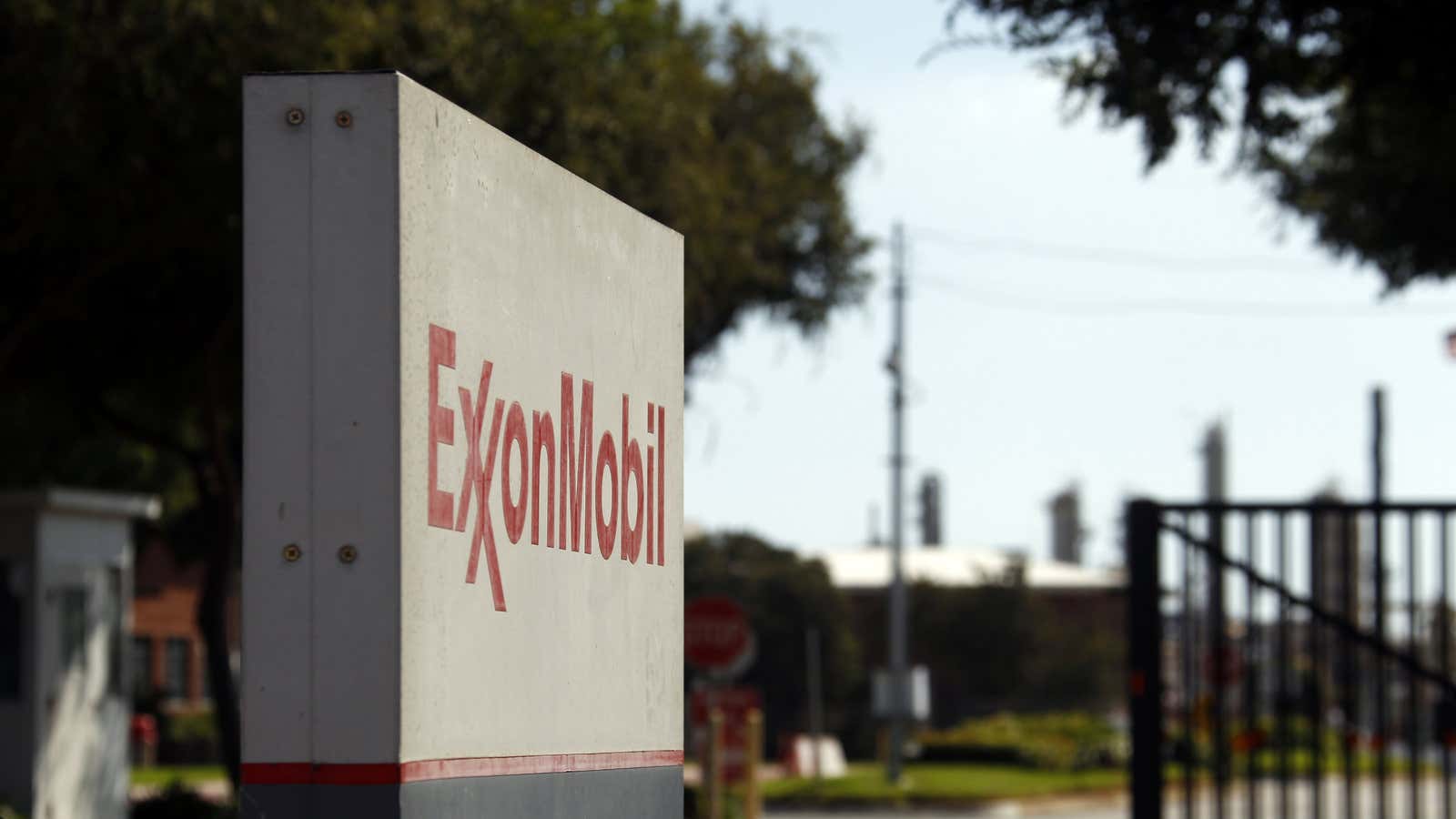Big Oil—which missed the opening rounds of the shale gas boom and has since paid a high price to get in–is again absent in a game-changing bonanza. This time it is East Africa, where risk-taking smaller players are the pioneers, and the super-majors are scrambling to join the rush.
On March 17, Norway’s Statoil announced its fourth big natural gas discovery off the coast of Tanzania, bringing the total of its finds there to the equivalent of at least 2.67 billion barrels of oil. (The industry regards a 1-billion-barrel field as a super-giant.)
Statoil owns 65% of the Tanzania field. The rest is owned by ExxonMobil, which in 2010 bought into the deal after the smaller Norwegian company paved the way. No other super-major owns any properties in the country.
The story is the same in neighboring Mozambique, which accounted for four of the world’s five largest natural gas finds of 2012—no super-major has acquired any rights there, either, although they are trying, as we’ll get to below.
The absence of Big Oil–BP, Chevron, Exxon and Shell; Total is a quasi super-major–from East Africa may seem odd. Analysts say that, taken together, Tanzania and Mozambique have sufficient reserves to become the largest supplier of liquefied natural gas on the planet. Yet it points to one of Big Oil’s handicaps in today’s very different business landscape: More than ever, the super-majors are generally having difficulty discovering enough new oil to keep from shrinking. Yet they are also generally showing a lack of nimbleness in the world’s highest-impact plays.
The US shale boom was pioneered by independents such as Anadarko, Chesapeake, Devon and Range Resources. In the past, the super-majors have not flinched at such successes, happy to allow smaller players to take the early risk and then buy in later. But that strategy has backfired this time. In 2009, ExxonMobil bought into the shale rush with a $41 billion purchase of XTO Energy, an acquisition that has since weighed down its earnings per barrel and its share price because of ultra-low US prices for natural gas.
ExxonMobil is still on top in important ways. It has boldly led the way for the super-majors into Kurdistan. It produces 4.2 million barrels of oil a day, far more than anyone else. And Wall Street continues to assign an approximate premium of 20% to the company’s share price in deference to its much-respected management. That is in part validated by return on capital (ROCE), the benchmark financial metric for the oil industry. ExxonMobil spokesman Alan Jeffers notes that the company’s ROCE in 2012 was 25.4%, compared with about 18% for Chevron, its closest rival. In addition, US natural gas prices eventually will go up, relieving ExxonMobil’s pain.
Interestingly, one of the super-majors—Chevron—is succeeding by making a virtue of missing the boat. Pumping about 2.65 million barrels a day now, Chevron projects that—because of coming volumes in Australia, Brazil, Canada and the Gulf of Mexico—it is on its way to producing 3.3 million barrels a day by 2017, a 24.5% increase in its income-producing base. It has been rewarded by Wall Street. Since Dec. 31, 2012, its share price is up about 10%, compared with a rise of 3% for Exxon (BP is down by 3% over the period and Shell by 4%). The apparent message being, “If you are late, find another play and don’t pay the higher price of entry.”
Yet that is a gamble as well. So it is that, as it did in the US shale patch, Big Oil is attempting to buy into East Africa. On March 14, Italy’s Eni agreed to sell a 20% stake in its huge offshore Mozambique holdings to the China National Petroleum Corporation for $4.21 billion. CNPC won the stake in competition with Exxon and Shell, according to reports. It was a second defeat in Mozambique for Shell, which last year was outbid by Thailand’s PTT in a $1.9 billion acquisition of Cove Energy, a partner of Anadarko in the country.
Now, Exxon and Shell are among companies to hold talks with Anadarko for its enormous Mozambique natural gas holdings. Anadarko wants to sell 10% of its share to help defray development costs.
They are again late to the party, but not shy to crash.
